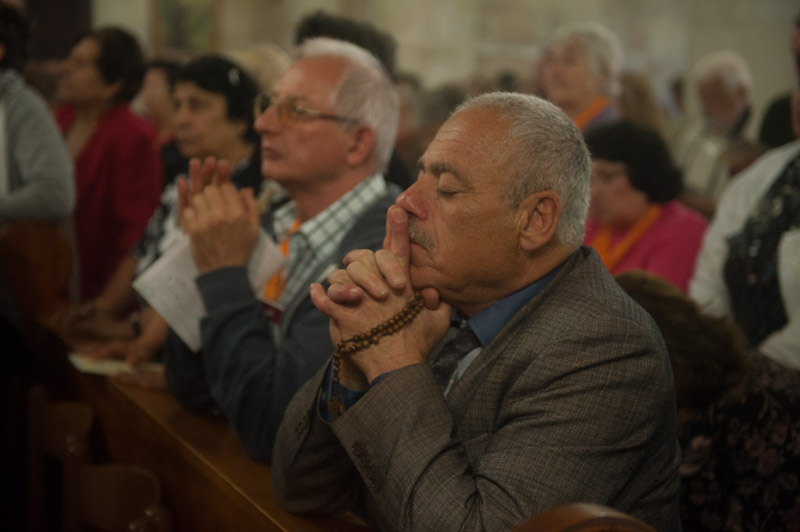
It is the greatest form of support for the Church of the Holy Land. This year it is once again possible to help the Christians of the Middle East with the Good Friday collection, promoted by the universal Church.
The little flock of Christians scattered throughout the Middle East is called ‘to promote dialogue and build bridges, according to the spirit of the Beatitudes, to proclaim the Gospel of peace,” so wrote Pope Francis in his letter to the Christians of the Middle East, entrusting them with a fundamental task in spreading the Christian message.
Each year, the Catholic Church promotes the Good Friday Collection: in every parish of the world, all of the donations collected from that day are used for the needs of the Holy Land, from pastoral care to the maintenance of the holy places, through projects for the development and livelihood of local Christians. This tradition was begun by several popes in the fifteenth and sixteenth centuries and it has continued to the present day.
Through a letter sent by Cardinal Leonardo Sandri, prefect of the Congregation for the Eastern Churches, the Pontiff thanked the Church of the Holy Land whose suffering, the letter reads, has “worsened in recent months because of the conflicts that plague the region. This suffering cries out to God and calls us all to make a commitment through prayer and all kinds of initiatives.”
Cardinal Sandri urges Christians around the world to show solidarity because “If the Christians of the Holy Land are urged to resist—as much as possible—any temptation to flee, the faithful around the world are asked to take this matter to heart. It involves brothers belonging to different denominations in that ecumenism of the blood that contributes to the triumph of unity: “ut unum sint!” (So that they may be one.)
The invitation to support the works of the Holy Land must bring together prayer and offering, so that the descendants of the apostles may feel less alone and so that they may continue to live in the wake of the faith of the first Christians.
The little flock of Christians scattered throughout the Middle East is called ‘to promote dialogue and build bridges, according to the spirit of the Beatitudes, to proclaim the Gospel of peace,” so wrote Pope Francis in his letter to the Christians of the Middle East, entrusting them with a fundamental task in spreading the Christian message.
Each year, the Catholic Church promotes the Good Friday Collection: in every parish of the world, all of the donations collected from that day are used for the needs of the Holy Land, from pastoral care to the maintenance of the holy places, through projects for the development and livelihood of local Christians. This tradition was begun by several popes in the fifteenth and sixteenth centuries and it has continued to the present day.
Through a letter sent by Cardinal Leonardo Sandri, prefect of the Congregation for the Eastern Churches, the Pontiff thanked the Church of the Holy Land whose suffering, the letter reads, has “worsened in recent months because of the conflicts that plague the region. This suffering cries out to God and calls us all to make a commitment through prayer and all kinds of initiatives.”
Cardinal Sandri urges Christians around the world to show solidarity because “If the Christians of the Holy Land are urged to resist—as much as possible—any temptation to flee, the faithful around the world are asked to take this matter to heart. It involves brothers belonging to different denominations in that ecumenism of the blood that contributes to the triumph of unity: “ut unum sint!” (So that they may be one.)
The invitation to support the works of the Holy Land must bring together prayer and offering, so that the descendants of the apostles may feel less alone and so that they may continue to live in the wake of the faith of the first Christians.

